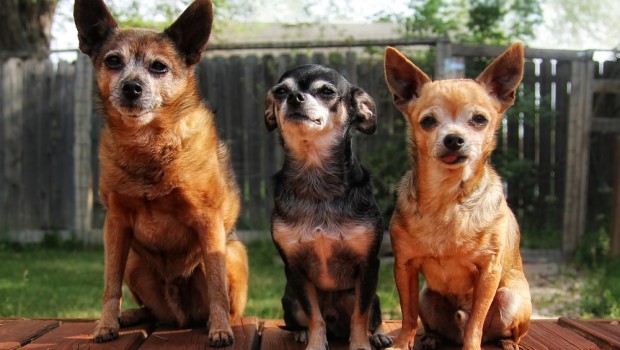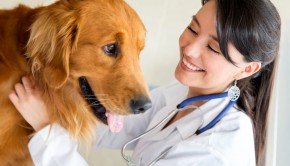Total Puppy Care: Proper Diet and Feeding Instructions For Puppies
Feeding your new puppy can be as simple or as complicated as you care to make it. You will undoubtedly get feeding suggestions from breeders, shelter operators, friends, dog books and magazines, and perhaps even your personal recollections of past experiences with other dogs you have owned. Of course, in the end, the proper advice to listen to comes from a professional breeder or your veterinarian.
However, basic guidelines can be established for diet. Puppies should be fed frequently (generally 3 times each day) and should be allowed to eat all that they want at each meal during their rapid growth period, which is up to approximately 9 months of age.
Keep Your Puppy On A Steady Diet
A steady diet is better for the majority of dogs than scraps and leftovers which may be lacking the proper nutritional elements for growth and development. Milk is a fine addition to a puppy’s diet if it does not cause an allergic reaction such as diarrhea or vomiting. Should either of the signs occur, a switch to powdered or canned, condensed milk, may be substituted to supply calcium for growing bones and teeth.
Many puppies too well on a diet of semi-moist foods (those packed in cellophane) or dry meals mixed with some canned food for flavoring. The semi-moist and dry foods provide a high-calorie energy supply while the canned foods supply a palatability.
For tiny puppies or toy breed dogs, the semi-moist and serial type foods can be made into a mix if necessary. Water should always be available in each be changed as often as necessary to keep it fresh, clean, and cool (but not ice cold).
Make Changes Slowly
Quite often, finding the proper food for a new puppy is a matter of trial and error. A safe procedure to follow is steering clear of all additives until the animal can tolerate his basic diet with no diarrhea or vomiting. That is, if the puppy is to be fed canned food, make sure he is doing well on that diet before adding oil, eggs, or other supplements that may tend to cause intestinal upsets.
Should changes in diet be necessary, it is generally adding a new food and decreasing the amount of the original food over a period of several days until a complete changeover has been accomplished. For those dogs that come equipped with loose bowels, a bland diet is advisable.
Cooked, drained ground beef mixed with an equal amount of boiled rice is easy to digest and may help firm up stools until a trip to the veterinarian can be arranged. Remember that water is very important to any animal’s diet, especially those dehydrated by diarrhea or other diseases, as well as those puppy’s which are fed dry or semi-moist foods.
Always Feed Your Puppy At The Same Time Each Day
Foods should be offered on a regular time schedule. This will not only help your puppy to adjust to the family routine but will also be an invaluable aid in housetraining. After each feeding, this dish should be removed and any remaining food discarded or refrigerated until the next meal time.
Leaving food down for your dog to have access to at all times will only encourage picky eating and poor habits. Not to mention it makes housetraining nearly impossible and can cause your puppy to have food poisoning, especially during the summer months when spoilage is common.






